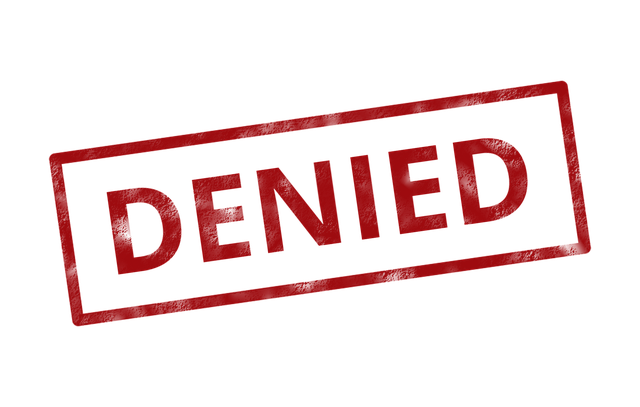Commercial insurance is a crucial safety net for businesses, offering protection against diverse risks including property damage, legal issues, business interruption, and employee injuries. It includes various policies like property, liability, workers' compensation, and specialized coverages tailored to specific business needs. Understanding these options, assessing risks, and selecting appropriate coverage are vital for business continuity. Small businesses require customized policies, and navigating claims processes with thorough preparation can ensure smoother resolutions. Exclusions and limitations in policies must be understood to avoid gaps in protection. Choosing a reputable insurer with suitable policy options, solid financial standing, and local business experience is essential. Staying updated on trends like cyber liability and personalized solutions is crucial in today's dynamic business landscape.
Local businesses are the backbone of communities, and protecting them from unexpected risks is crucial. This article explores the vital role of Commercial Insurance in safeguarding your local enterprise. We’ll guide you through understanding various policy types, assessing unique business hazards, and navigating claims processes. Learn why customized coverage is essential for small businesses and how to choose a reliable provider. Stay informed about recent trends in commercial insurance to make informed decisions securing your future.
Understanding Commercial Insurance: What It Covers and Why It's Essential

Commercial insurance is a safety net for businesses, providing financial protection against potential risks and unforeseen events. It’s not just about covering physical assets; it encompasses a wide range of liabilities, from property damage and legal issues to business interruption and employee injuries. Understanding what’s covered is crucial for any business owner, as it ensures continuity and financial stability in the face of adversity.
Having commercial insurance is essential for several reasons. It shields businesses from significant financial losses, enabling them to bounce back from accidents, natural disasters, or lawsuits. Moreover, it can help maintain operations during disruptions, protect valuable data, and cover costs associated with legal defence and settlement. In today’s competitive market, investors and customers alike view commercial insurance as a sign of responsibility and trustworthiness, enhancing the business’s reputation and attracting potential clients.
Types of Commercial Insurance Policies: A Comprehensive Overview

Commercial insurance is a crucial aspect of running a business, offering protection against various risks and potential losses. There are several types of commercial insurance policies available, each designed to cater to different business needs. These include property insurance, which safeguards buildings, equipment, and inventory from damage or theft; liability insurance, covering legal expenses and damages arising from injuries or property damage to customers or third parties; and workers’ compensation insurance, providing financial protection for employees who sustain work-related injuries or illnesses.
Additionally, businesses can opt for business interruption insurance, which compensates for lost income during unforeseen events disrupting operations. Professional liability insurance, also known as errors and omissions coverage, protects against claims of negligence or malpractice in professional services. Other specialized policies include vehicle insurance for company cars, cyber liability insurance to safeguard against data breaches, and employment practices liability insurance, covering legal costs related to employee disputes. Understanding these diverse commercial insurance options is essential for business owners to choose the right coverage tailored to their specific risks and operational requirements.
Assessing Risk: Identifying Potential Threats to Your Local Business

Assessing risk is a crucial step in understanding and mitigating potential threats to your local business, which is why it’s an integral part of any comprehensive commercial insurance strategy. The first step involves identifying internal and external factors that could impact operations, such as natural disasters (earthquakes, floods), theft or vandalism, and employee mistakes. For instance, a café owner might consider the risk of food poisoning incidents or slip-and-fall accidents within their premises.
Once these risks are identified, business owners can take proactive measures to minimize their impact. This may include installing fire alarms, security cameras, or employing robust data backup systems. Commercial insurance policies are then tailored to cover these specific risks, providing financial protection and peace of mind when unexpected events occur.
The Importance of Customized Coverage for Small Businesses

For small businesses, a one-size-fits-all approach to Commercial Insurance simply won’t do. Every enterprise has unique needs and risks that require tailored coverage. What may be adequate for a retail store wouldn’t be suitable for a restaurant or a construction company. A comprehensive insurance policy should reflect the specific operations, assets, and liabilities of your business.
Customized coverage ensures that you’re protected against the most likely and significant risks you face. It allows for better risk management and financial security. By working closely with an insurance broker who understands your industry, you can create a policy that offers peace of mind, safeguards your investments, and helps ensure the long-term success of your business.
Navigating the Claims Process: What to Expect and How to Prepare

Navigating the claims process for commercial insurance can seem daunting, but understanding the steps involved can help streamline the experience. Once you’ve filed a claim with your insurance provider, they will typically assign an adjuster who will investigate and assess the damage or loss. This includes verifying coverage, reviewing policy terms, and documenting the incident. Keep open lines of communication with your adjuster, providing them with all relevant information and answering any questions promptly.
To prepare for this process, gather all necessary documentation related to your business and the incident, such as invoices, contracts, and records of inventory or equipment. Take photos or videos of the damage or loss, ensuring they are well-organized and labeled. Also, keep detailed notes on any conversations with your adjuster or insurance representative. Being prepared and cooperative will ensure a smoother claims process and potentially expedite the resolution of your commercial insurance claim.
Common Exclusions and Limitations in Commercial Insurance Policies

Commercial insurance policies, while designed to protect businesses from financial loss, often come with certain exclusions and limitations. These clauses specify what isn’t covered by the policy, which can leave gaps in protection for business owners. Common exclusions include events like war, terrorism, or natural disasters, where insurance companies may not provide compensation due to the high risk involved.
Other typical limitations include the maximum amount of coverage, deductibles, and specific conditions under which claims will be accepted. For instance, some policies might exclude certain types of business activities, have restrictions on pre-existing conditions, or limit compensation for damages caused by negligence. Understanding these exclusions and limitations is crucial for business owners to ensure they have adequate protection tailored to their unique needs.
How to Choose the Right Insurance Provider for Your Local Enterprise

Selecting the ideal insurance provider is a crucial step in safeguarding your local business against unforeseen risks and ensuring a secure future. When choosing an insurer, start by understanding your specific commercial needs. Different businesses face diverse challenges; thus, tailored coverage is essential. Research and compare various providers offering local business insurance to find one that aligns with your requirements. Look into their policy options, exclusions, and limitations to ensure they cater to your unique operations.
Consider the reputation and financial stability of the insurance company. Check reviews and ratings from previous clients to gauge their satisfaction levels. Reputable insurers often provide better customer service, faster claims processing, and reliable support during difficult times. Additionally, opt for providers with a solid track record of serving local businesses, demonstrating an understanding of the area’s unique risks and regulations.
Staying Informed: Recent Trends and Changes in Commercial Insurance

In today’s ever-evolving business landscape, staying informed about the latest trends and changes in commercial insurance is crucial for local entrepreneurs and business owners. Recent shifts in the industry have brought about both opportunities and challenges, with a growing emphasis on cyber liability and data protection due to the rise of digital transactions. This has led to more comprehensive policies that cater to the unique risks faced by modern businesses, especially those operating online or handling sensitive customer information.
Additionally, there’s been a noticeable trend towards personalized insurance solutions, where carriers offer tailored packages to meet specific business needs. Changes in regulations and increasing awareness of potential risks have prompted many local businesses to reassess their coverage options. As a result, commercial insurance policies are becoming more flexible and adaptable, ensuring that businesses are adequately protected against emerging perils and financial uncertainties.
